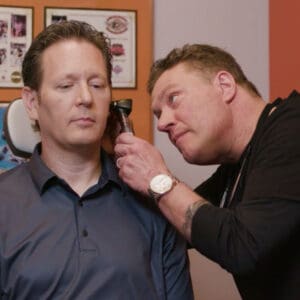Allergy Drops and Sublingual Immunotherapy
Allergy Drops and Sublingual Immunotherapy
What To Know About Sublingual Immunotherapy
Sublingual immunotherapy is an alternative approach to treating allergies without using injections. It works by providing a person with small doses of what they’re allergic to, in the hopes to increase tolerance or immunity to the allergens.
Compared to injection immunotherapy, which is provided as shots, sublingual immunotherapy is applied as drops under the tongue.
 Benefits of Sublingual Immunotherapy
Benefits of Sublingual Immunotherapy
A review of published studies has shown that there is much positive evidence that allergy drops are effective and safe for treating allergic rhinitis. Researchers have learned that sublingual immunotherapy is capable of reducing symptoms and medical requirements in patients.
In another study published in 2017, researchers reviewed the safety of immunotherapy for allergic rhinitis and found that it has very low chances of severe reactions compared to allergy shots.
Meanwhile, in a review of published studies, scientists learned that symptom relief continues for an average of two to three years even after allergy drop treatment is halted. Compared to allergy shots, sublingual application of immunotherapy is also less painful, while being much safer. Sublingual immunotherapy has even been found to be effective for younger patients.
At the Sinus & Allergy Wellness Center in Scottsdale and Fountain Hills Arizona, people can consult an ENT doctor to learn more about the benefits of allergy drops.
How Is Sublingual Immunotherapy Administered?
A doctor must first apply allergy testing to a patient to confirm their sensitivities. After learning about this, an allergen extract is then prepared in tablet or drop form as prescribed.
The patient is then directed to hold this under their tongue for one to two minutes, after which they should swallow it.
This process is done repeatedly, ranging from on a daily basis to three days a week depending on the prescription. Patients may also be recommended to undertake the therapy for three to five years to develop lasting immunity.
Regarding ragweed and grass allergies, patients are usually given the drops before the start and during the allergy season. As for people with dust mite allergy, they are prescribed the drops throughout the year.
The length of one’s treatment depends on the drops or tablets they’re taking, including advice from their allergist. For expert care and advice, we’d recommend talking to an allergist at the Sinus & Allergy Wellness Center.
Is Sublingual Immunotherapy Safe?
 The majority of clinical studies concerning sublingual immunotherapy in the past several years have shown that the method is relatively safe and effective in treating rhinitis. It was also found to be ideal for asthma caused by allergies such as cat dander, ragweed, dust mites, tree pollen, and grass.
The majority of clinical studies concerning sublingual immunotherapy in the past several years have shown that the method is relatively safe and effective in treating rhinitis. It was also found to be ideal for asthma caused by allergies such as cat dander, ragweed, dust mites, tree pollen, and grass.
There’s also growing evidence that sublingual immunotherapy could effectively treat itchy, red eyes caused by pollen during the hay fever season. Additionally, it may be an effective treatment for children who have mild eczema. Researchers are also studying whether it could be used to treat food allergies.
Any adverse reactions among both adults and children are often mild and local. They typically happen early on in the treatment and include stomach problems or an itchy mouth.
These symptoms can often be managed by adjusting the dosage. Severe allergic reactions have only been reported very rarely in some individuals who underwent sublingual immunotherapy.
That’s why it’s important to seek advice from a professional allergist, as they are the only ones who can best prescribe the right treatment. You can call the Sinus & Allergy Wellness Center at 480-493-4941 for more information.
Sublingual Immunotherapy Considerations
Individuals who have been documented to have an allergic disease, such as allergic rhinitis and allergic asthma, from allergy testing could be considered for sublingual immunotherapy. Young children have shown to be tolerant and can benefit from allergy drops, as have older adults.
Pregnant women can continue taking allergy drops during pregnancy but should avoid starting the therapy while pregnant. Those with severe asthma may have to be monitored closely on allergy drops since asthma symptoms have been known to worsen with the treatment.
The majority of studies concerning sublingual allergy drops have been applied on individuals who only had one type of allergy, such as dust mite or grass allergy. People who have multiple allergies, such as pet dander, molds, and pollen, may not be suitable candidates for allergy drops. The primary reason for this is the large volume of varying allergen extracts they would have to take to be effective.
Dr. Franklyn Gergits is BOARD CERTIFIED
 Dr. Gergits is board-certified by the American Osteopathic Board of Ophthalmology and Otolaryngology – Head and Neck Surgery/Facial Plastic Surgery/Otolaryngic Allergy. He’s also a Fellow of the American Osteopathic College of Otolaryngology.
Dr. Gergits is board-certified by the American Osteopathic Board of Ophthalmology and Otolaryngology – Head and Neck Surgery/Facial Plastic Surgery/Otolaryngic Allergy. He’s also a Fellow of the American Osteopathic College of Otolaryngology.
Dr. Gergits maintains active membership in numerous professional organizations. He has published many articles in peer-reviewed journals and abstracts on topics such as urticaria, angioedema, and pulmonary mechanics in neonates. He also served as a principal investigator in the TREAT Study, which was run by Aventis Pharma. He’s also the proud recipient of the Philadelphia County Medical Society’s Humaneness in Medicine award.
Take Aways
Sublingual immunotherapy can be a very effective approach in treating allergic rhinitis caused by ragweed, dust mites, and some grasses. It’s also as effective as allergy shots but is found to have increased side effects.
That’s why allergy drops are an ideal alternative to allergy shots, especially for those who dislike injections or lack the time to frequently visit the doctor’s office.
At the Sinus & Allergy Wellness Center in Scottsdale and Fountain Hills, Arizona, we have specialists who can guide you through the process of sublingual immunotherapy. Leave us a message or call us now at 480-493-4941 to learn more!
Disclaimer:
The information provided in this article is for informational and educational purposes only and does not constitute medical advice. It is not intended to diagnose, treat, cure, or prevent any disease or medical condition. Always seek the guidance of your physician or other qualified healthcare provider with any questions you may have regarding a medical condition or treatment.
Results may vary: Treatment outcomes and health experiences may differ based on individual medical history, condition severity, and response to care.
Emergency Notice: If you are experiencing a medical emergency, call 911 or seek immediate medical attention.



